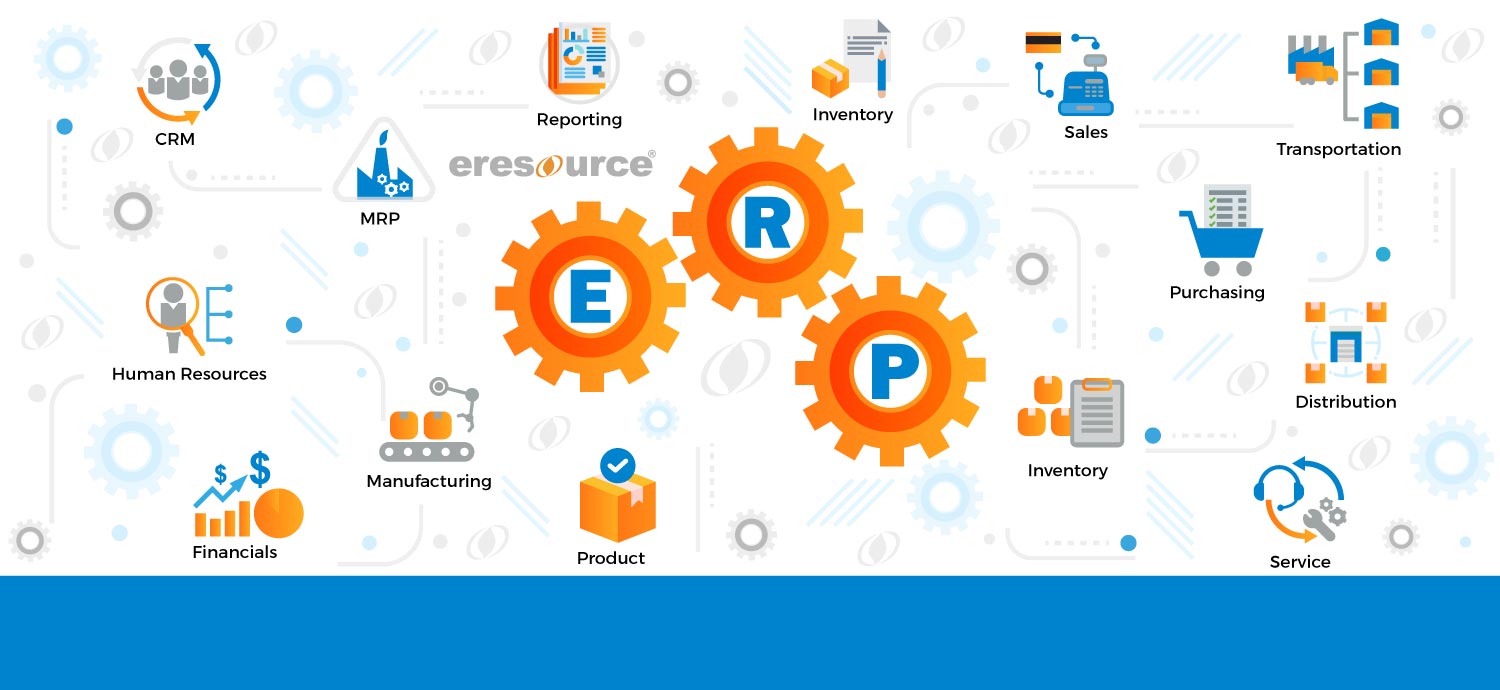In order to achieve integration, ERP (Enterprise Resource Planning) uses sub-systems that include hardware, software, and a shared database to store the data for various functions found throughout the organisation. ERP is a way to combine the data and processes of an organisation into a single system.
The term enterprise resource planning (ERP) used to refer to how major industrial organisations planned to employ organisational wide resources. Nowadays, ERP is utilised by practically all sizes and types of businesses, regardless of their industry or size. How do we determine which software applications qualify as ERP? It must, first and foremost, give an organisation functionality for at least two or more systems.
But many of today’s ERP systems are able to incorporate more than two functions into a single unified Data Base. Modern businesses use the ERP system, which unifies operations including human resources, supply chain management, customer relations management, financial management, manufacturing management, and warehouse management.
Integrating ERP is essential. Its fundamental objective is to integrate and unify processes and data from every part of the organisation in order to facilitate easy access and a productive work flow. ERP systems often achieve this by using a single database that makes use of numerous software modules.
The ideal setup would be for an organisation to have a single ERP system, but very large organisations have been known to develop an ERP system and then add external interfaces for other stand-alone systems considered to be more powerful or capable of better meeting the needs of the organisation.
Also Read – ERP for Construction Industry
The Perfect ERP Solution
The ideal ERP system would have a single database for the entire business and include all of the information for different software modules, including:
- Bills of materials, quality assurance, the production process, engineering, etc.
- Fixed assets, general ledger, and accounts (payable and receivable).
- Payroll, time and attendance, benefits, and training.
- Order input, purchasing, inventory management; claim processing, and supply chain planning.
- Activity management, billing, costing, and time and expense tracking.
- Phone Centre Support, commissions, client interaction, sales, and marketing.
Also Read – ERP Software in Ghana
Productivity and ERP
Prior to the advent of ERP systems, the majority of organisations used separate operating systems, databases, and data for each department. The issue was that many of those systems were unable to connect with one another. For instance, a company’s financial data would have been stored on a different computer system than its human resources data, which would have complicated the completion of several tasks.
An ERP system enables an organisation to have a seamless operation across all areas. The organisation benefits from higher productivity as a result, and software usage may be reduced.
Also Read – Best ERP Software for Manufacturing in India
Putting an ERP system into practice
An ERP system’s implementation is a difficult task. It necessitates extensive planning and consultation. An ERP implementation can take anywhere from three months to more than a year to complete.
ERP systems can be very sophisticated for many organisations and have an incredibly broad scope. For instance, adjustments to personnel and working procedures can be necessary. It is better (and more economical) to utilise consultants with specialised training in ERP implementation rather than just “in-house” IT staff.
One of the most crucial characteristics an organisation should have when deploying an ERP system is project ownership. It is crucial to ensure that everyone is on board and will contribute to the success of the new ERP system because there are so many changes that occur and that practically every person in the organisation is affected by them.
Employing ERP suppliers or consulting firms, organisations can implement their customised ERP system. When putting an ERP system into place, consulting, customization, and support services are required.
The earliest phases of ERP deployment, training, workflow, etc., are the responsibility of consulting.
Customization: extending the new ERP system’s use or altering its use by developing unique user interfaces and/or underlying application code. For an organization’s particular requirements, some items might still need to be constructed or customised. Support: Technical upkeep and support for ERP systems.
Also Read – ERP Software in Nigeria
The benefits of ERP systems
The benefits of deploying an EPR system are numerous:
- All of it is integrated.
- It has the capacity to simplify various procedures and operations.
- Sharing data between different organisational departments is simple.
- It raises productivity and efficiency levels.
- Better tracking and forecasting are provided.
- It is less expensive.
- It offers better customer support.
Read More – How does ERP drive the transportation industry
Categories
Register for Free Demo!
Recent Post
-

eresource ERP 360 - an
11th Apr 2019 -

A competitive ERP system for
17th Apr 2019 -

Auto components manufacturing industry has
17th Apr 2019 -

Make the best use of
17th Apr 2019






